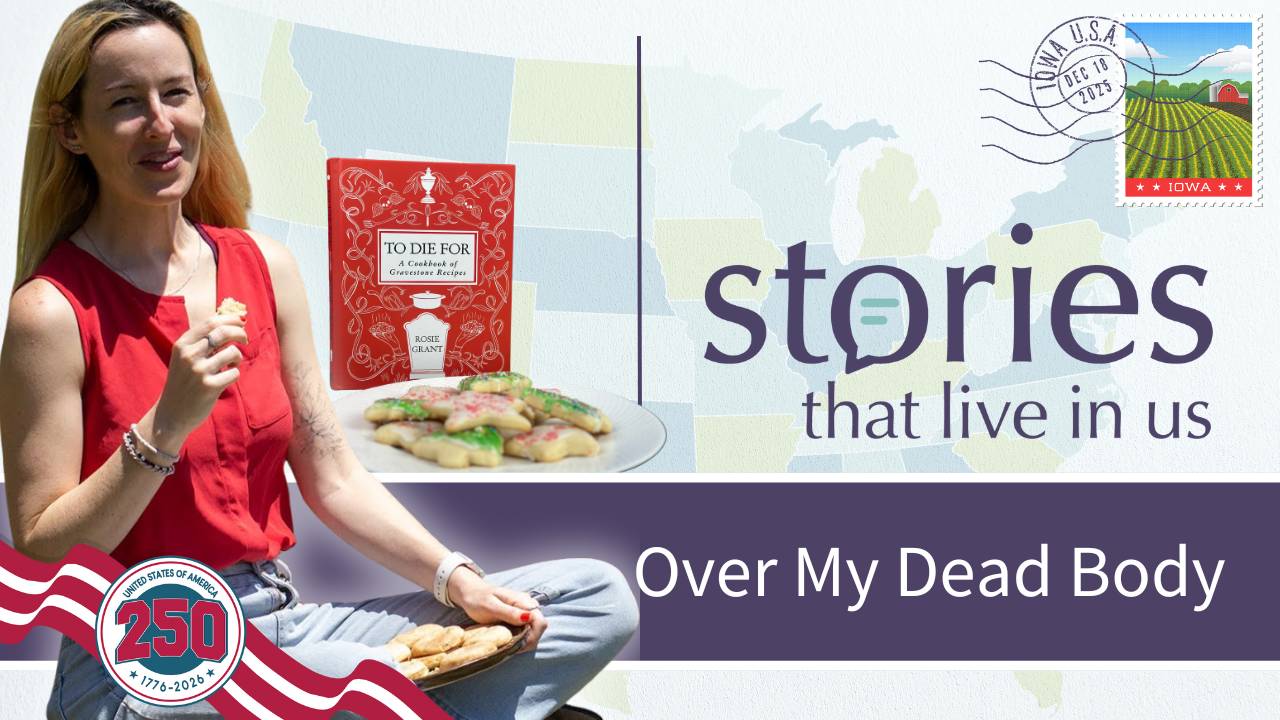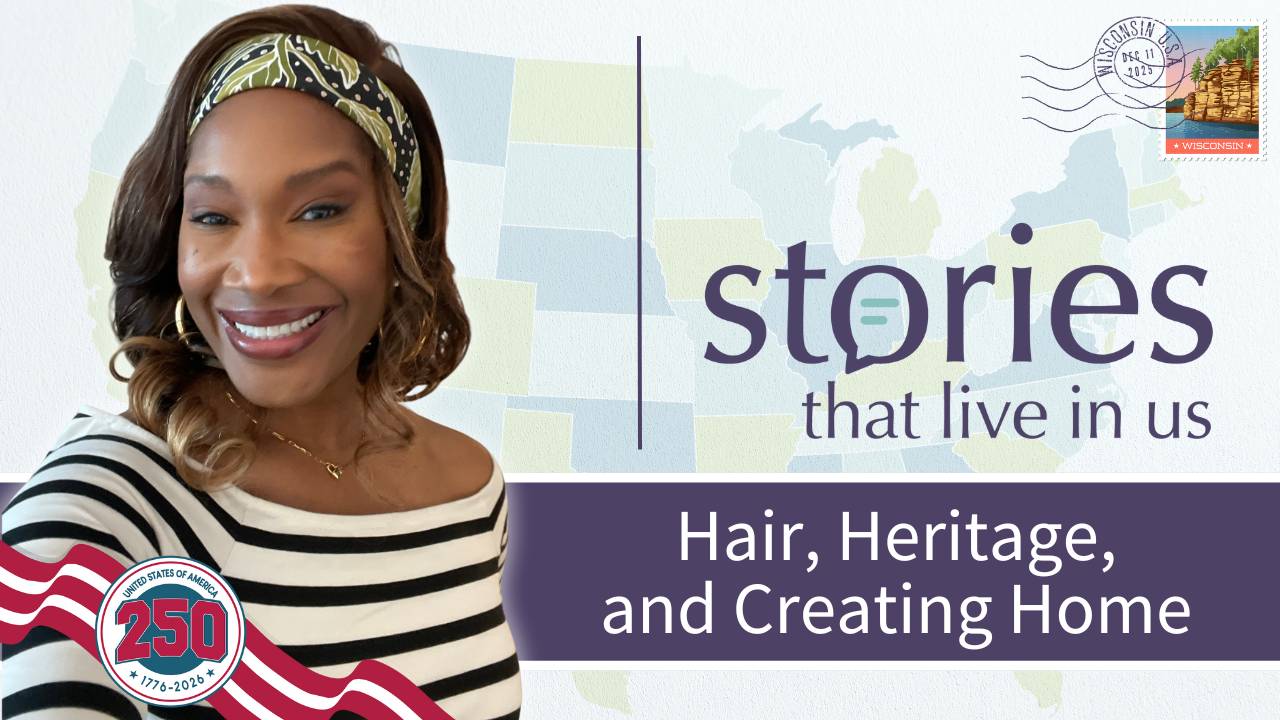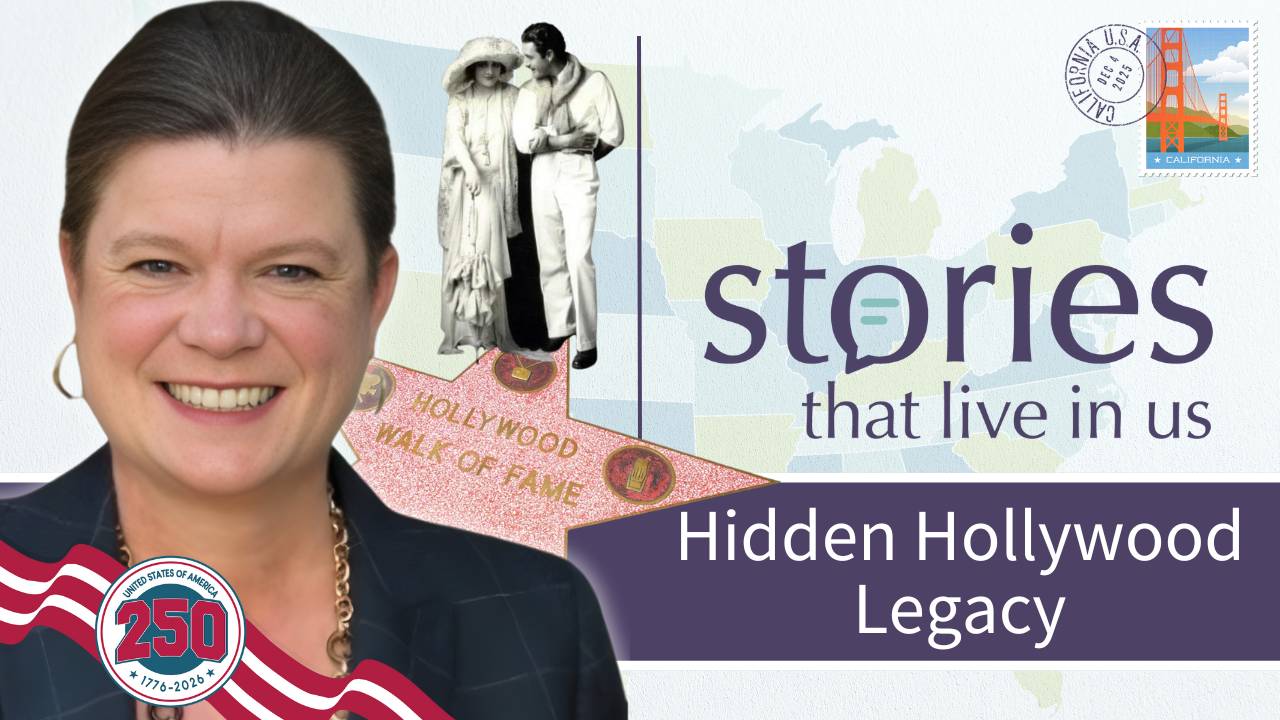Hawaii: Woven Together in the Aloha State
Jul 24, 2025
What if the most powerful family stories aren't just about people, but about the places that shaped them? What happens when a melting pot of cultures doesn't just coexist, but creates something entirely new—a family legacy built on connection instead of conflict?
That's exactly what I discovered when I sat down with my dear friend and former colleague Mike Daniels to kick off Season 2 of Stories That Live In Us. Mike's family story reads like a love letter to Hawaii. It’s a tale of picture brides and mass weddings, of cultural tensions transformed into family feasts, and of a place so powerful it continues to shape identity generations later.
From War to Wedding Bells
"He went up to her and said, 'Hey, you look like you could use some swimming lessons.' And she slapped him. And here we are."
Mike's parents met on a Hawaiian beach in the 1950s. His father was a Jewish sailor from Boston whose own father had died in a tragic train accident. His mother, a second-generation Japanese-American woman whose parents had met for the very first time on the docks of Honolulu as picture brides.
But this wasn't just a simple love story. This was 1950s Hawaii, where cultural tensions still ran deep from World War II. Mike's maternal grandfather initially struggled with his daughter marrying a white man, until one fateful sake drinking contest changed everything.
"One day he decided to have a sake drinking contest with grandpa and he held his own, and so grandpa started to respect him because of that."
The Whole Story 🎧
Ready to hear how picture brides, family feasts, and a mysterious name change shaped one family's Hawaiian legacy?
Prefer audio only? Click here to listen on your favorite podcast app.
🎧 Listen to the full episode to discover:
- The remarkable story of picture brides who met and married in a single day
- How a sake drinking contest bridged cultural divides
- What holiday dinners looked like with 50+ extended family members
- The genealogical mystery that revealed a Lithuanian Jewish surname hidden behind "Daniels"
- Why everyone in Hawaii becomes "auntie" or "uncle"and how that tradition helps bridge cultural divides
- How Mike's childhood experiences of cultural tension shaped his later success as a mayor
The Power of One Story
Mike's family story captures something profound about Hawaii's unique role in American history. Unlike the mainland United States, where immigrant communities often felt pressure to assimilate and abandon their cultural identities, Hawaii became a place where cultures layered on top of each other, creating something entirely new.
"Growing up in Hawaii, I can say that I've met a lot of different cultures from all over the world, because it is a melting pot and it's really possible for people to live together in peace."
Think about that for a moment. While Mike's Jewish grandfather changed his surname from Danielewicz to Daniels to assimilate in Massachusetts, Mike's Japanese great-grandparents maintained their cultural identity even as they built new lives as sugar plantation workers. Two completely different approaches to immigration, both represented in one family tree.
The result? Holiday gatherings that were "a smorgasbord and just a delight" with foods from all the different cultures that had married into the family. A place where conflict transformed into connection, where "everybody is an auntie or an uncle."
Your Story
As we launch this America 250 series, Mike's story reminds us that place isn't just geography. It is a character in our family stories. It’s where our families lived, loved, and struggled. It where they left and where they came to. Hawaii shaped Mike's understanding of multicultural harmony in ways that later influenced his career and his service as a mayor.
What places have been characters in your family's story? What cultural collisions created unexpected connections in your own family tree?
Story Seeds 🌱
Plant these conversation starters and watch your family stories grow.
- For Parents/Grandparents: "What do you remember about the neighborhood or community where you grew up? How did different cultures or families get along with each other (or not)?"
- For Aunts/Uncles: "Tell me about a time when someone from a different background or culture became part of our family. How did family members react? Did it change our family traditions in any way?"
- For Older Relatives: "What was the biggest cultural or social change you witnessed in your lifetime? How did your family adapt to it?"
Story Sparks 🔑
Unlock your family's hidden stories with these Hawaii-specific family history resources.
- Search Hawaiian Sugar Plantation Archives: The Hawaiian Sugar Planters' Association Plantation Archives at the University of Hawaii contains nearly 150 years of records including laborer contracts, personnel records, and company correspondence. Search by plantation name (like Oahu Sugar Company or Koloa Plantation) to find your ancestor's work records.
- Check Hawaiian Vital Records: Hawaii has birth and death records starting in 1841, with many early records kept by missionaries. Ancestry has certificates and indexes available through 1949. The Hawaii State Archives has digitized vital statistics collections, and records over 115 years old are available for genealogical research through their special request process.
- Use Ulukau Hawaiian Electronic Library: This free digital library contains Hawaiian genealogy indexes, land records, and marriage/divorce records. Search their Hawaiian Genealogy Indexes section for ancestors who lived in Hawaii during the territorial period (1900-1959).
- Browse Hawaiian Newspapers: There are more than 9 million pages of newspapers, dating back to 1840, available on Newspapers.com. Browse and explore to get a feel for the cultural changes over time or search for specific family names in the islands.
This is just the beginning of our America 250 journey together. Over the next 49 weeks, we'll explore stories from every state, discovering how place becomes character in the American family story. From sea to shining sea, we'll uncover the tales of immigration, migration, courage, and community that remind us why sharing our stories strengthens the bonds that connect us.
Next week, we'll journey to Alaska for another remarkable tale of frontier life and family resilience. Don't miss it!
Ready to discover more stories like Mike's? Subscribe to Stories That Live In Us wherever you get your podcasts, and if this episode touched your heart, please leave us a rating and review—it helps other family story seekers find us.
© 2025 Crista Cowan. All rights reserved.







